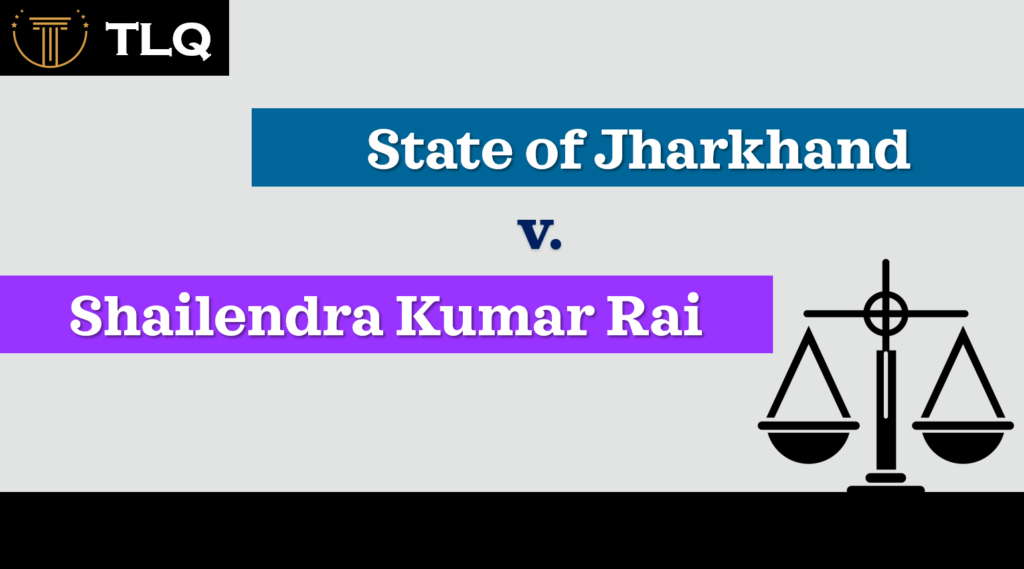Published On: 24th April, 2024

Maintenance :
In a very basic sense, it means that financial support is provided for a person’s living expenses. In Islamic law, the term maintenance means nafaqa, and it means maintaining understood food, rain, and clothing. The wife is entitled to maintenance from her husband. Even though she has the resources to support herself, the woman is entitled to maintenance from her husband. Furthermore, the terms of the marriage contract may require the husband to provide specific allowances to the wife; in such a case, the husband is obligated to do so. These allowances go by the names mewa khore, guzara, kharch-e- pandan, etc. One may argue that this is a right.
Legal duty to maintain one’s wife under Islamic law:
The first ever relationship that began in the history of Islam was the relationship of husband and wife in the name of Adam (A.S.)[1] and Hawwa (A.S.)[2].
That relationship is regarded as the purest. It is also well known that, regardless of the relationship they are in, women in Islam occupy very prominent positions.
“A woman is her father’s source of Jannah when she is a daughter.” A woman holds the Jannah beneath her achievement when she becomes a mother.
A woman completes half of her husband’s imaan when she marries.
A woman as a wife becomes the total responsibility of the husband to be maintained.
It was established and authorized by the Holy Quran as the sunnah of the Prophet (Pbuh). based on the logic and Ijma of the Fuqaha.
Limitations on Maintenance:
In accordance with Muslim law, a wife is only eligible to request maintenance upon a divorce or upon learning that her husband has declared talabaq against her. According to Islamic law, a widow is only eligible for maintenance during her Iddat term.
The holy Quran states that in Surah Al-Talaq, the duration of maintenance that a wife is entitled to. that maintenance for Muslim women shall be given to her only during the period of her Iddat. The remarriage of divorced women would terminate the obligation to her former husband.
According to the holy Quran, there is just one condition under which the period of iddаt varies in Islam.
When a woman is declared Talaq, her Iddat term is three months; however, if her husband has passed away, it is four months and ten days.
A landmark judgment that changed interpretation
BAI TAHIRA V. ALI HUSSAIN FIDAALLI CHOTHIA[3]
Facts of the case:-
Ali Hussain married Bai Tahira in 1956 as his second wife, and they had a
son later on. Tahira was residing in one of her husband’s flats in Bombay. Ali Hussain divorced his wife Bai Tahira in 1962 and gave her ownership of the flat and shares of the Cooperative Housing Society with the
reference to mehar money of Rs. 5000 and Rs. 180 of Iddat money. Bai Tahira was still unmarried.
She ran into financial straits a few years later and was unable to maintain herself and the child; therefore, she filed a petition for support under Section 125 of the Criminal Procedure Code of 1973. The magistrate awarded a monthly maintenance allowance of Rs. 400 to the mother and Rs. 300 for the child. The disgruntled husband contested this ruling in front of the Sessions Judge, who granted the appeal on the peculiar grounds that the court lacked jurisdiction to decide whether the petitioner qualified as a wife for purposes of Section 125.
The Bombay High Court dismissed a revision petition immediately without paying much attention to the matter.
The Supreme Court decided that a Muslim woman will always receive a corresponding amount for her maintenance, regardless of the sum decided upon as Mahr. Although the Mahr money payment is a customary discharge under Section 127(3)(b) of the Criminal Procedure Code, 1973, the court pointed out that the divorced woman is still entitled to support under Section 125 of the same law until this reasonable sum is paid.
Mohd. Ahmad Khan v. Shah Bano Begum[4]
FACTS OF THE CASE:
In 1932, lawyer Mohd Ahmed Khan married Shah Bano Begum; together, they had two daughters and three sons. Shah Bano’s husband disowned her and threw her and their kids out of their marital residence in 1975, when she was sixty-two years old. She failed to receive the Rs. 200 monthly maintenance that her husband was supposed to give her, so in 1978 she filed an appeal with the Indore Judicial Magistrate. She asked for a 500-rupee monthly increase in maintenance.
Later, on November 6, 1978, her husband issued an irreversible triple talaq, which he used as a justification to avoid having to pay maintenance. The husband was ordered by the magistrate in August 1979 to pay maintenance totaling Rs. 25 per month. Shah Bano requested in July 1980 that her maintenance be increased to Rs. 179 per month, and the Madhya Pradesh High Court granted her request.
Through a special leave petition, the husband appealed the High Court’s ruling to the Supreme Court.
The issues raised in the Shah Bano case were:
Is a Muslim woman who is divorced included in the definition of “wife”? Is there a conflict between Section 125 and Muslim Personal Law regarding a Muslim husband’s duty to support a divorced wife?
The Shah Bano Case Decision:
Chief Justice Y.V. Chandrachud delivered the Shah Bano case verdict, which led to the dismissal of Mohd. Ahmed Khan’s appeal. The Code of Criminal Procedure’s Section 125 was declared to apply to all citizens equally, regardless of their religion, by the Supreme Court. The court explained that Muslims were also covered by Section 125(3) of the Code of Criminal Procedure. It was emphasized that Section 125 took precedence over Muslim personal law in the event of a dispute.
In the Shah Bano case, the Supreme Court determined that, in accordance with the Muslim Personal Law, a Muslim husband’s duty to support a divorced wife who was unable to support herself continued after the iddat period. The court stated that this Muslim law regulation was unfair or inhumane since it put a divorced wife in a position where she was unable to support herself.
The court further declared that the husband’s payment of Mehar 5, which he made as part of his divorce settlement, did not release him from his duty to support his wife.
Following a lengthy legal proceeding, the Supreme Court finally decided in the Shah Bano case that a husband would no longer be legally obligated to provide for his divorced wife if she was able to support herself. But if the wife couldn’t support herself after the iddat period, this duty would be reinstated, and she would be eligible to receive alimony or maintenance under Section 125 of the Code of Criminal Procedure.
Post Shah Bano case:
The Shah Bano judgment in India was met with protest by Muslim leaders who saw it as a threat to their identity and personal laws. This unrest was further fueled by the Ram Janmabhoomi-Babri Masjid controversy and the admission of a petition in the Calcutta High Court seeking a ban on the Quran. To gain popularity and secure Rajiv Gandhi’s chair, his government passed the Muslim Women (Protection of Rights on Divorce) Act, 1986.
The Act nullified the effect of Shah Bano’s judgment and provided for provision and maintenance for Muslim women during divorce. The Act obligated the husband for “reasonable and fair provision and maintenance to be made and paid within the iddat period.” However, the Act restricted the right to maintenance to Muslim women “by her husband” until the iddat period only. If the woman cannot maintain herself and has not remarried after the iddat period, she cannot seek maintenance from her former husband. The Magistrate is only authorized to order her relative to pay reasonable and fair maintenance to the woman, or if she has no relatives or no capacity to pay, the Magistrate may order the State Wakf Board to pay the required maintenance.
Noor Saba Khatoon v. Mohd. Quasim[5]
Facts of the case:-
The appellant married a respondent in 1980, who had three children. After their divorce, the respondent neglected to provide maintenance for the children, and the appellant filed an application under Section 125 Cr.P.C. in 1992. The trial court found that the respondent had neglected to provide maintenance and directed the respondent to pay $200 per month to the appellant and $150 per month for each of the children as maintenance until they reached the age of majority.
The respondent later divorced the appellant and filed an application to modify the order. The trial court found that the appellant was only entitled to maintenance for a period of three months, i.e., the period of ‘Iddat’, following the separation from her husband. The court also found that the 1986 Act did not override the provisions of Section 125 Cr.P.C. for the grant of maintenance to minor children.
The appellant challenged the order through a revision petition, but the court dismissed it, stating that the 1986 Act does not override the provisions of Section 125 Cr.P.C. for the grant of maintenance to minor children. The High Court accepted the plea of the respondent, stating that a divorced Muslim woman is entitled to claim maintenance from her previous husband for her minor children only for a period of two years from the date of birth.
Judgement:-
The appeal was successful, and the Trial Court’s and the Revisional Court’s orders were reinstated.
Under Section 3(1)(b) of the 1986 Act, a divorced wife’s right to maintenance for maintaining the infant child or children in her custody for a period of two years from the date of the child’s birth is not to limit, affect, or control the rights of Muslim children to claim maintenance under Section 125 Cr. P.
- for the period until they attain majority or are able to maintain themselves, whichever is earlier, and in the case of females, until they get married.
As instructed by the trial court, the respondent will keep providing maintenance to the children until they reach adulthood, become self-sufficient, or, in the case of the daughters, until they marry.
Danial Latifi v. Union of India[6]
Facts of the Case:
Daniel Latifi Case: Shah Bano’s Divorce and the Muslim Women (Protection of Rights on Divorce) Act, 1986
Shah Bano, a divorced woman from Madhya Pradesh, filed a case for maintenance under Section 125 of the Code of Criminal Procedure (CrPC).
The Supreme Court upheld her right to alimony for Muslim women.
The Muslim Women (Protection of Rights on Divorce) Act, 1986, invalidated the Shah Bano case and denied her maintenance.
Daniel Latifi, Shah Bano’s counsel, argued the Act violated Article 21 of the Constitution and Articles 14 and 15.
Latifi filed a Writ Petition in the Supreme Court challenging the Act’s constitutional validity.
LEGAL ISSUES:
Whether Section 3(1) of the Muslim Women (Protection of Rights on Divorce) Act, 1986, is inconsistent with Articles 14, 15, and 21 of the Constitution of India,?
Whether the Muslim Women (Protection of Rights on Divorce) Act, 1986, is constitutionally sound?
Judgement:-
Shah Bano’s Case Reveals Extension of Husband’s Liability for Maintenance
- The husband’s responsibility to provide maintenance extends beyond the iddat period, which is a three-month menstrual period or three lunar months if the woman is pregnant.
- The parliament’s amendment contradicts the principle stated in Shah Bano’s
- The Act governing Muslim women’s maintenance remains unchanged until Danial Latifi’s
- Women of all religions can avail themselves of their rights under Section 125 of the Criminal Procedure Code.
- Women can be exempt from not receiving maintenance under Section 125 if they receive a fair or reasonable settlement under Section 3 of the Muslim Women Protection
- The wife can receive maintenance under Section 125 until the husband fulfills his duty under Section 3 of the Muslim Women (Protection of Rights on Divorce) Act, 1986.
Shayara Bano vs. Union of India [7] (Triple Talaq[8] Case)
Shayara Bano vs. Union of India, also known as the Triple Talaq Case, is a landmark case in India that declared the practice of instantaneous Triple Talaq as unconstitutional. This ruling is widely considered a safeguard against social evils and has led to the ban of the Muslim practice of Triple Talaq, which is a process of divorce under Sharia Law where a Muslim man can instantly divorce his wife by pronouncing the word “talaq” three times without state intervention. The practice is prevalent among India’s Muslim communities, following the Hanafi School of Law[9]
The case involved Shayara Bano, who was married to Rizwan Ahmed for 15 years. In 2016, Rizwan divorced her through oral triple talaq (talaq-e-biddat). Bano filed a petition in the Apex Court, arguing that the practice violated Articles 14, 15, 21, and 25 of the constitution.
Triple Talaq is a controversial custom that intersects gender identity and community, leaving Muslim women prone to abuse and in a morbid state. The Indian parliament passed the Muslim Women (Protection of Rights on Marriage) Bill, 2019, declaring the practice illegal and unconstitutional, making it a punishable act from August 1, 2019.
The Supreme Court’s decision has brought justice to those victims of Triple Talaq, ensuring that ideas of equality, particularly gender equality, are not mere theoretical ideologies. The case serves as a reminder that the rights of women should be respected and that the pursuit of equality is not just about theoretical ideals.
Shayara Bano, a woman who was divorced by her husband through instantaneous triple talaq in 2016, filed a petition before the Supreme Court stating that these practices violated Articles 14, 15, 21, and 25 of the Indian Constitution. The case was supported and criticized by many organizations, leading to the unconstitutional ruling.
Shayara Bano’s marriage with Rizwan Ahmed, who had been married for 15 years, was also a victim of domestic violence and dowry harassment. In 2016, she was divorced through instantaneous triple talaq (talaq-e-biddat) and filed a writ petition with the Supreme Court, asserting that these practices were illegal, unconstitutional, and in violation of several
fundamental rights, including equality before the law, non-discrimination, the right to life with dignity, and freedom of conscience and religion.
The Union of India and women’s rights organizations like the Bhartiya Muslim Mahila Andolan (BMMA) supported Bano’s plea for these practices to be held unconstitutional. They even urged the court to declare personal law subject to fundamental rights.
The All-India Muslim Personal Law Board (AIMPLB) argued that uncodified Muslim personal law is not subject to constitutional judicial review and that the Court did not have jurisdiction to entertain a constitutional challenge to Muslim personal law, as these are essential practices of the Islamic religion and protected under Article 25 of the Constitution.
On February 16, 2017, Shayara Bano, the Union of India, various women’s rights bodies, and the AIMPLB were asked by the court to introduce written submissions on the problems and issues of talaq-e-bidat, nikah-halala, and polygamy. Nikah Halala, also known as tahleel marriage, involves a woman getting divorced again after consummating the marriage through triple talaq.
In conclusion, Shayara Bano’s case provided an opportunity to classify the constitutional status of personal law and address the issues surrounding instantaneous triple talaq, polygamy, and Nikah Halala.
Conclusion:
Muslim law has changed significantly over the years, but what matters most is that the cases have always benefited or elevated Muslim women in some way. There are numerous other cases, such as Shamim Ara v. State of Utah, in which the court determined that maintenance was required even after dower was paid, and the case of Danial Latifi, which also benefited Muslim women. The main thing that changed over the course of the IDDAT period was the wife’s maintenance, which was to be paid for three months, enough to last her until death, or her husband would pay her money on a monthly basis to allow her to at least maintain her standard of living, which includes housing, food, and clothing.
Bibliography:
- https://indiankanoon.org/doc/115701246/
- https://indianlawportal.co.in/case-analysis-danial-latifi-vs-union-of- india/#_edn1
- https://www.law.cornell.edu/women-and-justice/resource/ danial_latifi_v_union_of_india
- https://www.legalserviceindia.com/article/l141-Danial-Latifi-v.-Union- of-India.html
- https://legalvidhiya.com/noor-saba-khatoon-v-mohd-quasim-air-1997- sc-3280/
- https://lawbhoomi.com/shah-bano-case-summary/ #:~:text=The%20Supreme%20Court%20in%20Shah,in%20the%20Musl im%20Personal%20Law.
- https://www.legalserviceindia.com/legal/article-12879-a-case-analysis- on-landmark-case-of- maintenance.html
[1] The first prophet in Islam
[2] wives of the first prophet in Islam
[3] BAI TAHIRA V. ALI HUSSAIN FIDAALLI AIR 1979 SC 362
[4] Mohd. Ahmad Khan v. Shah Bano Begum AIR 1985 SC 945
[5] Noor Saba Khatoon v. Mohd. Quasim (AIR 1997 SC 3280)
[6] Danial Latifi v. Union of India (2001) 7 SCC 740
[7] Shayara Bano vs. Union of India (2017) 9 SCC 1
[8] Talaq-ul-Biddat
[9] School in Muslim Law





